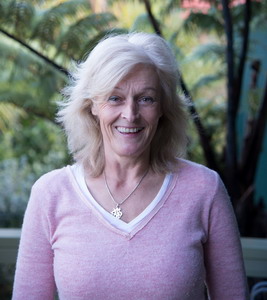New Zealander Cameron Tukupua has been a practitioner of traditional Chinese medicine for 30 years and a frequent visitor to China since 2005. She speaks to Tracie Barrett about how TCM can help people deal with the increasing pressures of modern life.
 |
| Cameron Tukupua combines New Zealand's indigenous Maori culture, traditional Chinese medicine and yogic philosophy in a mindfulness and meditation retreat. [Photo provided to China Daily] |
Cameron Tukupua combines New Zealand's indigenous Maori culture, traditional Chinese medicine and yogic philosophy in a mindfulness and meditation retreat. [Photo provided to China Daily]
Cameron Tukupua calls herself a "seeker of happiness" and believes that is our natural state.
"Children are naturally joyful, light and happy," she says. "They laugh easily and their emotions flow freely. So what happens? How do we lose that?"
The vibrant 52-year-old with a ready smile answers her own question, saying that a child gets hurt for the first time and becomes vulnerable, and that vulnerability creates a disconnect from the natural state of ease, leading to disease - "a lack of ease, a separation from that unity".
Tukupua, whose practice combines New Zealand's indigenous Maori culture, traditional Chinese medicine and yogic philosophy, was in Beijing in September to lead a mindfulness and meditation retreat.
During her stay, she also completed a book, Opening Up: A Conversation about How to be Real, which she says offers everyday language for people's emotional states and what those states are signaling.
Having founded a government-registered acupuncture college in her home country and been involved with traditional Chinese medicine for 30 years, she sees her practice as encouraging patients to reconnect with their inner spirits.
"So many people are having, or have had, traumas and experiences and events in life that they haven't really recovered from so then they continue to wobble their way through life," she says. "But more and more, we're seeing people deal with challenging times by getting numb - taking medicines, drinking alcohol, covering up, pretending it's not happening. There's a lot of masking going on."
She believes society is "normalizing" mental illness but says how we are living is "far from normal".
"Thirty years ago, stress was a term that described the tension between steel beams. It was an engineering term. Now everybody says. 'Oh, you're stressed', like that kind of tension is normal."
She sees stress as apparent in China, with its dramatic economic rise and significant increase in the standard of living.
